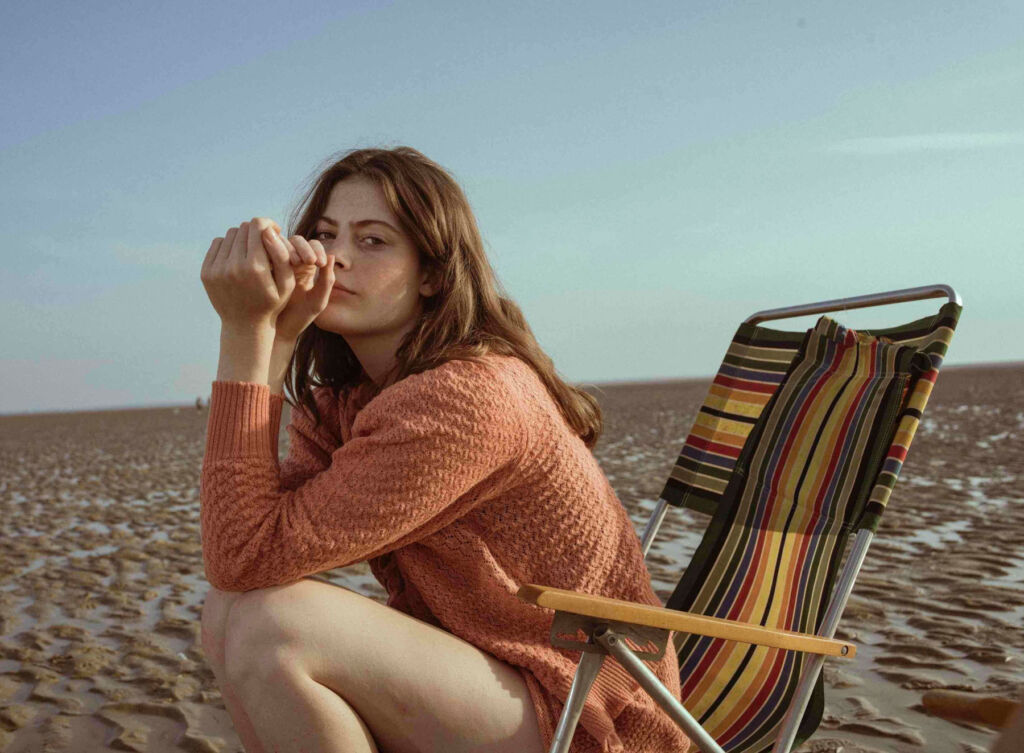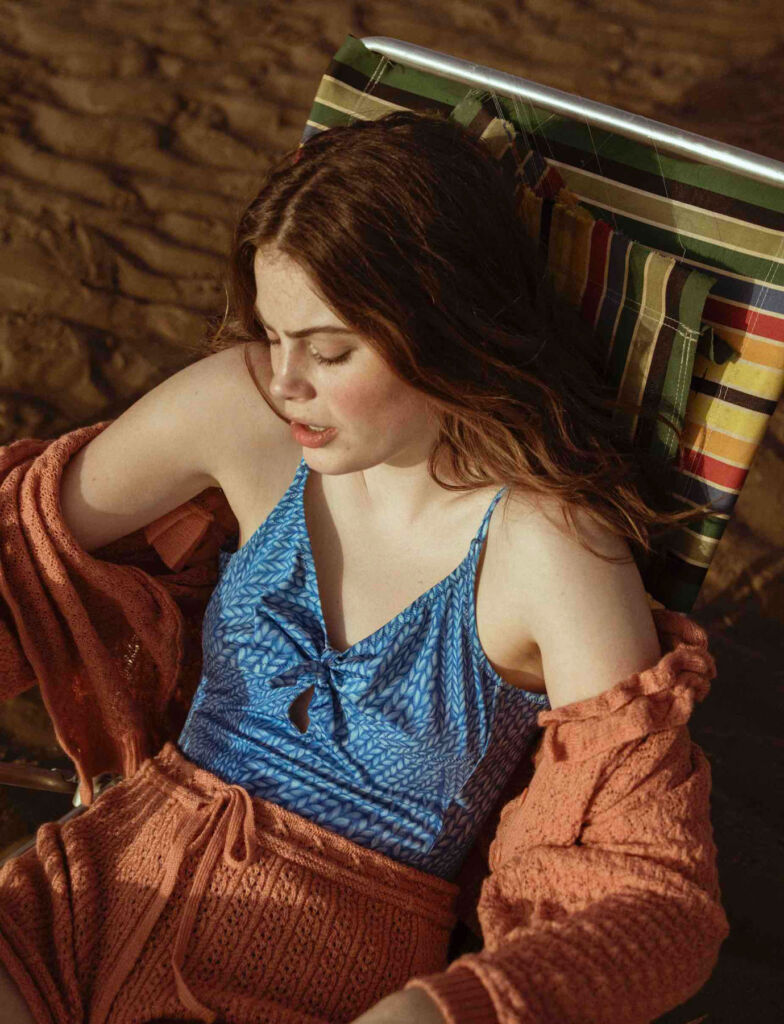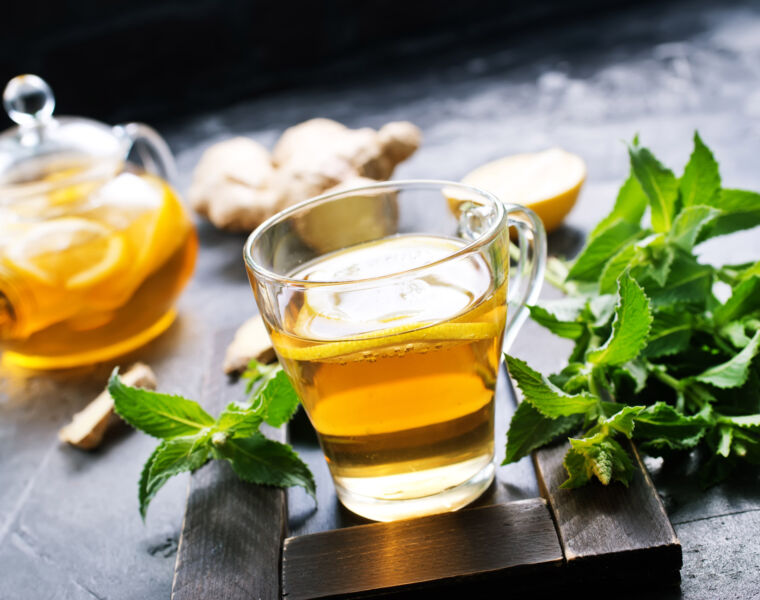
HERD’s Lytham collection has been inspired by the shapes of the shells found on the vast, deeply tidal beaches of Lancashire. The new collection comprises five flattering pieces designed to be worn together or apart every day and for special occasions.
The exaggerated flourishes in the Lytham Collection are designed to flatter the feminine form, with high shoulders, tapered cuffs, frilly collars and hems that skim the waist and the lighter wool makes the pieces wearable throughout the day into the twilight of summer evenings.
HERD’s Lytham Collection also incorporates a new colour called Shrimp pink, created by using the plant Madder and naturally occurring mordants using no toxic or synthetic chemicals and is in line with all their other colours that utilise blended un-dyed wool. The result of this is a completely natural and circular collection.
The woman behind HERD is Ruth Alice Rands, a pioneering, uncompromising, activist entrepreneur with a drive to find natural, scalable and viable solutions to the systems that support our lives, which are so out of balance. After spending many years in fields producing live events, her first business Atlantic Kitchen was founded in 2012 and is a wild, organic seaweed business harvested locally from the Northern Atlantic Ocean.
Seaweed is native, abundant, fast-growing, and more efficient at sequestering carbon than forests. It also contains more vitamins and minerals than any other plant on the planet and can help resolve problems from weight management to depression.
While living in San Francisco, Ruth discovered knitting and became fascinated with the processes used to make natural fibres. On her return to the U.K., she began to dig deeper into the heritage wool industry of the North West of England and uncovered the neglected but functioning industrial capabilities to produce a garment within 150 miles of the sheep farms.
Given the centuries that the wool industry has grown and thrived in Britain, underpinning the expansion and power of the Empire, the rapid decline of the industry in the mid-20th century following the creation of artificial fibres from petrochemicals alongside the globalisation of production had a stark impact on local economies and communities.
Fashion and textile production for clothes has a massively negative environmental impact. This can be seen in oil extraction from the world’s most biodiverse places and the transportation of raw materials worldwide, which are then processed in countries where wages and chemical use are unregulated. All this is done to provide a cheaper solution to a naturally occurring fibre that’s warm, breathable, anti-bacterial, anti-microbial, wicking of moisture and ultimately biodegradable.
Ruth and HERD are also doing their best to reverse the trend for imported wool from China, Australia and New Zealand, instead championing the excellent wool found in farms and fields and on the hill, fells, and common land all over the U.K.
By using only 100% fine English wool, with no toxic chemicals or dyes, HERD is closing the carbon loop begun in the soil with heirloom pieces that have a beautiful story to treasure for generations.
The Dying Process
Colour development is an ever-evolving experiment! No dye houses in the U.K. have any experience or offer plant dyeing, so everything they do is trial and error. They started with a very stable plant extract, madder, to develop a range of red/pink shades from Peach to Raspberry.
The next extract is yellow Weld, again another stable dye but with the addition of ferrous sulphate, which brings rust to the colour from yellow to khaki green. Ferrous is challenging to work with, and their khaki green colour Moss has resulted in many trials and errors! New colours in development are Sage, Apricot, Charcoal and Lavender, and hopefully, these will be simpler to produce!
 Ruth said, “We were introduced to the dye house by our local spinner, who was initially cautious but recognised the broader trend in this direction and were reassured by the expertise in natural dyes and the story of Herd that we presented them with.
Ruth said, “We were introduced to the dye house by our local spinner, who was initially cautious but recognised the broader trend in this direction and were reassured by the expertise in natural dyes and the story of Herd that we presented them with.
We started with a series of small-scale trials. We use the same mordants and dyes used in artisan natural dyeing but adapted the recipes based on a variance of time vs pressure. Rather than using exhaust baths to create lighter shades, we reduced the levels of dye.
We started with madder root, which produces shades of red to pink, and Weld, which makes a full spectrum of yellow, then with ferrous sulphate added to darken it can result in khakis. The range and intensity of colours have impressed everyone, not least the dye house team. We sent a sample of the plant-dyed wool off for fastness testing and have had impressive results, showing colour, light and wash fastness if washed as instructed. Our Shrimp pink knits are the first commercially dyed plant-dyed knitwear made in the U.K. and available on the market today.
A rainbow of colours is possible by using and combining different dyes and darkening or strengthening agents, many of which require multiple processes, so it is certainly the beginning of a long journey, but given we have already proven there is no need for additional investment in machinery the first step in the direction of natural, circular, plant dyed clothing at scale has definitely been taken.”
For more information on the HERD brand and the Lytham collection, visit www.herdwear.co.
Read more lifestyle news and features here.
![]()




You must be logged in to post a comment.